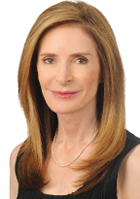A panel, Neuroscience and Sentencing, was convened at the Lincoln Center campus to launch the new Neuroscience and Law Center at Fordham Law School.
Founded by Deborah Denno, PhD, Arthur A. McGivney Professor of Law, the center aims to be a multi-disciplinary, evidence-based center that explores the ways in which the law is being affected by changing notions about criminal culpability, free will, thought, behavior, and pain.
The panel featured:
Justice Elizabeth Bennett, Court of Appeal of British Columbia, Court of Appeal of Yukon, and Court Martial Appeal Court of Canada;
The Honorable Denny Chin, U.S. Court of Appeals for the Second Circuit;
Professor Ruben Gur, Departments of Psychiatry, Radiology, and Neurology, Perelman School of Medicine, University of Pennsylvania;
The Honorable Jed Rakoff, U.S. District Court for the Southern District of New York.
While Bennett delved into theoretical questions for which she said she had no answers, Chin talked about the day-to-day business of law, noting that he had yet to oversee a case that was connected to neuroscience. It will appear in tort cases though, as well as concussion cases involving football and hockey, and right-to-die cases.
In criminal cases, neuroscience will likely show up in sentencing hearings, he said. He was skeptical of its use in predicting future behavior though, and wondered how it would apply to Megan’s Law, a statue targeting pedophiles.
“Can one look at a brain image to see whether these individuals have irresistible impulses, and whether there’s a greater likelihood that they will continue to offend? I’m a little troubled by the concept. Maybe some day, but I don’t think we are there,” he said.
Illuminating some basics of the science, Gur said the term “free will” is not one that neuroscientists use. One can see this when doctors operate on different-functioning areas of the brain in close proximity—for example, an area that stops epileptic seizures that is close to the part of the brain responsible for language.
“There is a certain region where if I put an electrode and pass some current, patient(s) will start talking. [Then] I put it in another area, and they’ll lift their right hand.
“If you ask patients ‘Why did you lift your right hand?’ they’ll say, ‘I sort of felt like it all of the sudden.’ We have a strong sense that we are the agents of our behavior.
“At the same time, the assumption in neuroscience is, ‘If I just triggered the right part of the brain, you’ll be doing whatever I want you to do.’”
And yet it’s not quite that simple, he said, because interactions among brain parts become a factor in behavior as well, especially if one part is injured or if messages are corrupted.
“Neuroscience in the courtroom is not just showing a picture and saying ‘Here, this is what caused the patient to behave,’” he said.
Rakoff recalled Eugenics in the 1920s, lobotomies in the 1940s, and Freudian psychoanalysis in the 1950s as cautionary examples for those who might pounce on neuroscience in the courtroom.
Even though neuroscience today is far superior to those experiments, it can’t, for example, help determine what to do with someone who is a psychopath, he said.
“These are dilemmas that neuroscience doesn’t really solve. At the same time, I must say, it forces judges to look a lot harder at the basic principles underlying our legal system,” he said.
]]>
The Fordham School of Law has opened its doors to the public this fall for a series of lectures about the intersections of law and neuroscience.
The series, which is part of a seminar for Fordham Law students looking to explore topics beyond first-year courses, will feature leading neuroscientists, psychologists, medical researchers, and lawyers.
The lectures kicked off on Sept. 3 and will run every Tuesday through Nov. 26, wrapping up with “My Neurons Made Me Do It!” by Hon. Jed S. Rakoff, Judge, United States District Court Judge for the Southern District of New York.
Other class lectures include:
• “Neuroscience of Addiction,” by Fordham Professor of Chemistry Joan Roberts, Ph.D.,
on Oct. 8.
• “The Neuroscience of PTSD,” by Rachel Yehuda, Ph.D., professor of psychiatry and neuroscience and director of the Traumatic Stress Studies Division of Mt. Sinai School of Medicine, on Oct. 29.
• “Will there be a Neuroscience Revolution?” by Adam Kolber, professor of law at Brooklyn Law school, on Nov. 12.
Deborah W. Denno, Ph.D., the Arthur A. McGivney Professor of Law, started the seminar and lecture series, now in its third cycle, to prepare law students for fields of science that are “going to be very much a part of their working lives, no matter what area of law they go into.”
The seminar examines a variety of cutting-edge, at times controversial, linkages—from social and environmental influences on the brain, to the interpretations of neuroimaging, to the prediction of criminality and predispositions toward mental illnesses and addictions.
“It’s important for students to get out of the box of law, branch into other disciplines, and to become comfortable and accustomed to talking to nonlawyers and experts in other fields—particularly technical fields such as neuroscience, biology, physiology, and more before they graduate,” said Denno. “They’ll be working with [such]experts when they are lawyers.”
Denno said she opened up the classes to the public because the lineup of stellar speakers will draw high interest beyond just a student audience; the series has already attracted members of the medical profession and lifelong learners from the community.
“Fordham is a place for the interchange of ideas,” she said. “It’s part of our mission.”
A full schedule of the series can be found at http://law.fordham.edu/faculty/22818.htm
Although the Fordham community and the public are invited to attend, reservations are required.
For more information, contact Denno at [email protected].
]]>